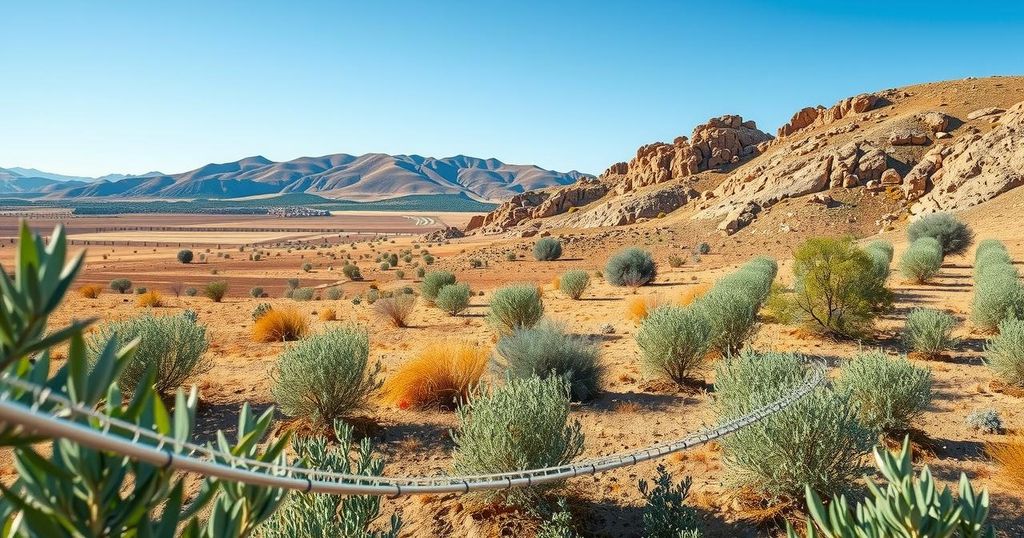Morocco and UK Researchers Develop New Tool for Semi-Arid Land Management
Researchers from Morocco and the UK have developed a new decision-support framework aimed at improving land management in semi-arid regions. This tool assesses environmental and economic impacts of crops and irrigation methods, utilizing various simulation models. Test scenarios included crop diversification and efficient irrigation, revealing trade-offs in profitability and environmental effects. The framework assists in better decision-making for farmers and policymakers.
Managing land use in the semi-arid regions of Morocco poses significant challenges. Issues like limited water supply, degraded soils, and the impacts of climate change complicate agricultural practices. To tackle these problems, researchers from the Mohammed IV Polytechnic University in Morocco, along with teams from the UK’s Rothamsted Research and Cranfield University, have developed a novel decision-support framework aimed at improving irrigated farming practices in the region.
This new framework integrates several established models designed to evaluate the environmental and economic impacts associated with varying crop types and irrigation techniques. Published on June 1 in Science Direct, the study highlights its use of the Intergovernmental Panel on Climate Change (IPCC) model to assess nutrient loss, the Rothamsted model for predicting soil organic carbon, and Cornell’s Environmental Impact Quotient to analyze the effects of pesticides.
A distinguishing feature of this framework is the application of Monte Carlo simulations. This technique involves running numerous simulations to account for uncertainties in land management decisions. The outcomes are depicted through clear visuals, aimed at helping both farmers and policymakers grasp the associated risks and benefits more intuitively.
In collaboration with local farmers and stakeholders, the research team experimented with various scenarios. These included diversifying crops, expanding olive cultivation, and implementing water-efficient systems such as drip irrigation. The findings highlighted significant trade-offs in agricultural practices.
The effort to double olive production demonstrated a 4% increase in carbon storage, a 3% reduction in water requirements, and a remarkable 42% drop in greenhouse gas emissions. However, this boost in olive farming was accompanied by lower profitability, a decrease in edible calorie production, and higher pesticide effects compared to traditional crop rotation.
Conversely, crop diversification contributed to a reduction in harmful pesticide application but also resulted in lower profits. Simplifying, the introduction of drip irrigation improved profits by an impressive 23%, while saving 13% water and cutting nitrogen runoff by 40%, a significant environmental benefit as outlined in the study.
“We found that no single system is perfect,” stated Dr. Imane El-Fartassi, who led the research initiative. “Every choice involves balancing production, profit, and environmental impact. Our framework helps make these trade-offs clear and supports better decision-making,” she added, emphasizing the importance of informed choices in agricultural practices.
The collaborative research has produced a valuable tool to address the challenges of semi-arid farming in Morocco. By illustrating the trade-offs between different agricultural practices, the framework presents farmers and policymakers with critical insights for sustainable land management. The advancement in irrigation techniques, alongside crop diversification strategies, fosters both agricultural productivity and environmental stewardship, although profitability remains a concern across the board.
Original Source: en.yabiladi.com




Post Comment